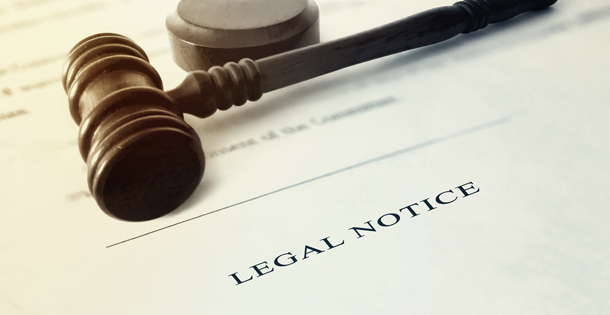If you have a legal question for Lew and his colleagues, send it to [email protected]. He may answer it in a future column.
This article is for informational and entertainment purposes and not for the purpose of providing legal advice. Consult your own lawyer for specific counsel.
Dear Lew,
I got into an argument with my coworker because he was accusing me of something that I didn’t do. I thought that was the end of it, but I just got an official looking letter in the mail demanding a response. The whole thing is stressing me out and I did nothing wrong! Do I have to respond?
Sincerely,
Wrongfully Accused in Worcester
Dear Wrongfully Accused,
Lawsuits, legal threats, and disputes in general are justifiably stressful for practically everyone involved. There is a lot of money, time, and energy at stake. It is tempting to try to avoid the hassle altogether by ignoring the problem, particularly if you feel like you are in the right.
As a rule, treat all legal matters seriously. Even if you think a claim is bogus, consider your options professionally and pragmatically. Deciding on how to respond (or not) to the letter might depend on who sent the letter.
If the letter is from the court or is otherwise part of a court proceeding, then you are likely obligated to respond within a certain time frame. For example, if you fail to respond to a summons or a complaint (documents that initiate a lawsuit in many states), the court might award a default judgment against you. In other words, if you fail to respond, you could automatically lose the lawsuit.
Even if you are not a party to a lawsuit, you could be subpoenaed (called to give testimony in another case). If you fail to respond to a subpoena, you could be found to be in contempt of court and subject to sanctions.
Make sure to read any legal letters you receive carefully to determine whether a demand for your response is legally required.
If the letter was written by your coworker or your coworker’s lawyer, without any involvement of the court, you might not have a legal obligation to respond. The decision of whether to respond to such a letter is best made with the advice of an attorney. Your attorney might help you evaluate whether the official looking communication is real or not — it might be a scam or someone trying to obtain information about you. Your attorney might also consider whether your dispute is best addressed through formal or informal communications, through legal response, or through no response at all.
If you have a state or municipal license or certificate (for example, if you are a health care worker, real estate or insurance broker, social worker, architect, or engineer) or if your business is licensed or otherwise certified, it is possible that you were contacted by a state or local agency with authority over your license. This can arise out of a coworker complaint, a client complaint, or an investigation the agency opened on its own. Never ignore a letter from a group that regulates your work; your ability to carry out your work could be suspended or even revoked.
Often, when someone is apprehensive to respond to a legal demand letter, it is not necessarily because they have made the conscious choice not to respond; rather, they could be paralyzed by stress, fear, or anger (think flight, as in “fight or flight”). Whether you are obligated to respond or not depends on the nature of the circumstances and the type of demand you received. Even if you are not obligated to respond, your interests might be served by a well-crafted communication. Your decision should be driven by the desired outcome, rather than by your emotions, and is usually best determined with the advice of counsel.
Become a Saturday Evening Post member and enjoy unlimited access. Subscribe now




Comments
I love the paintings of Norman Rockwell. I remember seeing them in the Saturday Evening Post in the ’50s.
The July-August issue of your magazine has his painting of the Country Doctor dated April 12, 1947. My grandfather was one of those country doctors that, I’m sure, spent his time being a friend, counselor, and listener-to-troubles of his patients. A country boy, he put himself through medical school in Mobile, Alabama, graduating in 1905. He practiced until his death in 1954 at the age of 80. I was thirteen when he died and that painting brought back fond memories of my grandfather.